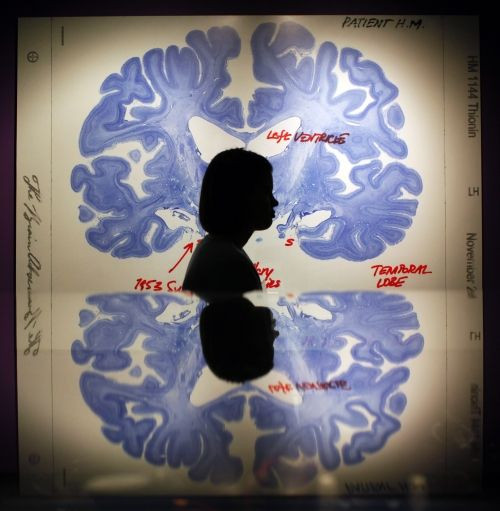Frontal Lobe Size in Brain Does Not Explain Human Intelligence

Human intelligence can't be narrowed down to just one brain region. While the frontal lobes of the brain play a key role in complex thought, their relative size does not fully explain how humans became smarter than other primates, a new study suggests .
The two frontal lobes, located behind the forehead and at the front of each hemisphere of the mammalian brain, are considered essential for intelligence, decision-making, and abstract thought.
The researchers behind the new study, published today in the journal Proceedings of the National Academy of the Sciences (PNAS), counter what they say is a misguided assumption that expanding frontal lobe size allowed humans to evolve to higher intelligence over time.
"It has been thought that frontal lobe expansion was particularly crucial to the development of modern human behaviour, thought and language, and that it is our bulging frontal lobes that truly make us human," said lead author Robert Barton, a professor of anthropology at Durham University, in a news release.
"We show that this is untrue: human frontal lobes are exactly the size expected for a non-human brain scaled up to human size."
According to Barton, previous studies comparing relative frontal lobe sizes among human and animal brains had inconsistent results and were difficult to compare because they used different measurement scales.
In the new study, Barton and Chris Venditti of the University of Reading in the UK analyzed five previous data sets using consistent measurement scales and phylogenetic methods, which trace characteristics according to an "evolutionary family tree."
Specifically, they used a new mathematical model of trait evolution which analyzes how fast particular characteristics evolved over time — in this case, the size of particular brain regions.
The results indicated that the size of human frontal lobes did not significantly increase relative to other primate species that humans split off from millions of years ago. However other primitive regions such as the cerebellum, which are thought to be more basic in function, were found to have higher relative volume and numbers of neurons in humans than other animals.
"This means that areas traditionally considered to be more primitive were just as important" for the evolution of human intelligence, the researchers wrote. "In fact there is already some evidence that damage to the cerebellum, for example, is a factor in disorders such as autism and dyslexia."
That doesn't cancel out the importance of the frontal lobes in human intelligence — it only suggests that the overall size of that region alone is not what sets us apart from the apes.
The researchers write that neurons in human frontal lobes might be organized differently, or more densely, than in the brains of other primates.
It's also possible that totally different brain regions such as the amygdala and temporal lobes, which are involved in emotion and forming memories, are more complex in humans than in other species.
The most likely explanation, based on recent research, is that human intelligence is linked to increasingly advanced networks of brain activation, connecting many different neural regions. In short, intelligence is way too complex to be narrowed down only to the size of one area.
Robert A. Barton and Chris Venditti. Human frontal lobes are not relatively large. PNAS, May 13, 2013 DOI: 10.1073/pnas.1215723110



























